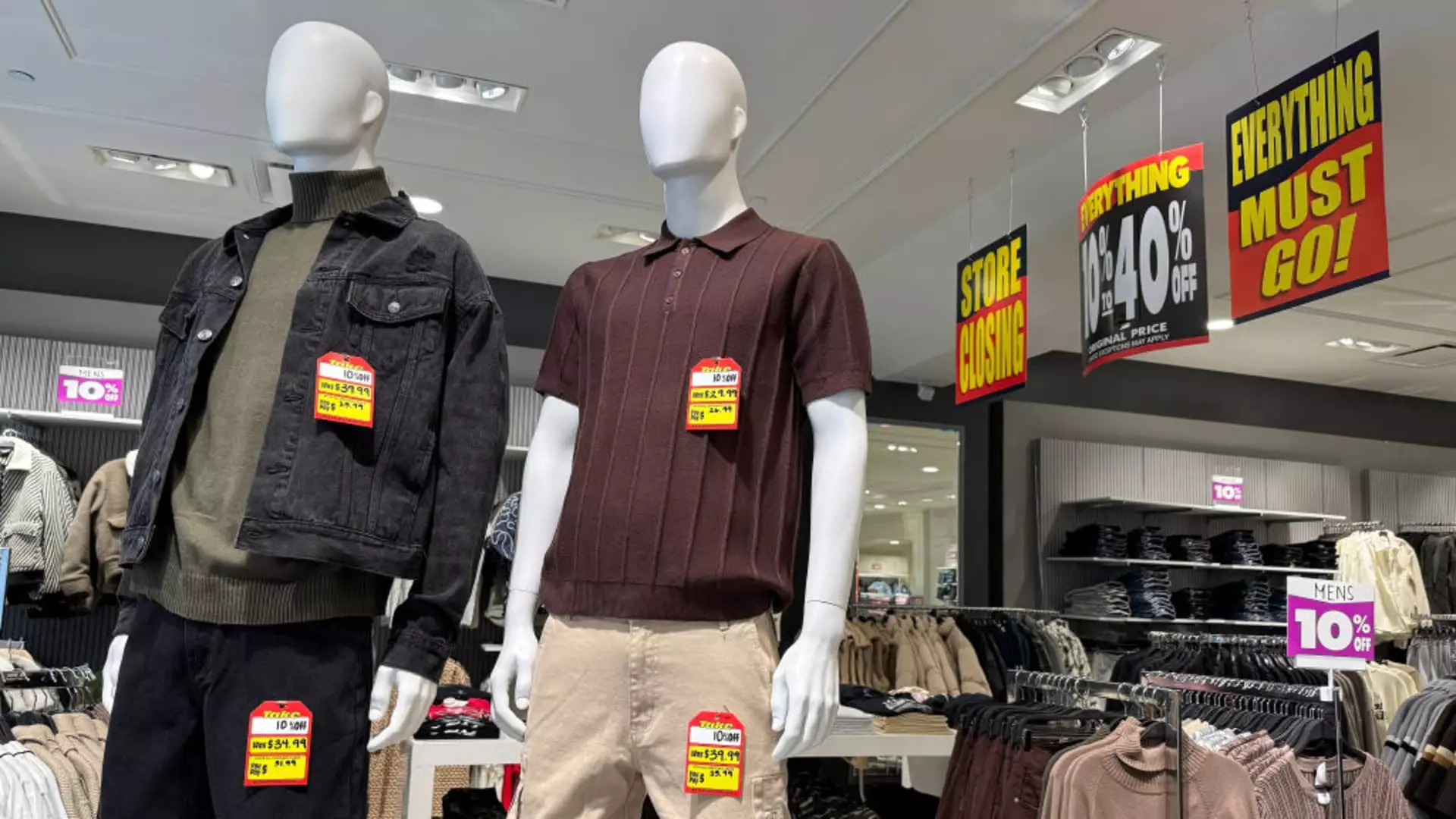When Forever 21 filed for bankruptcy protection for the second time in six years, it signified much more than just a business failing; it showcased an entire retail industry in crisis. Blaming competitors like Shein and Temu, Forever 21 represents the detrimental impacts of modern market dynamics on traditional brands. The company has already begun liquidation sales impacting over 350 locations in the U.S. as it grapples with an uphill battle to maintain its market presence. The nostalgia that Forever 21’s brand evokes, coupled with the disheartening reality of climbing debts—over $1.58 billion—paint a painful portrait of what once was a titan of fast fashion.
The brand’s ability to adapt seems compromised by a potent mix of competition, economic hardship, and outdated business practices. From a peak of $4 billion in sales and housing 43,000 employees, the company’s trajectory downward serves as a cautionary tale for both consumers enamored with fast fashion and the industry itself.
The Fast Fashion Giants: Goliaths with Unfair Advantages
During court proceedings, Stephen Coulombe, the co-chief restructuring officer of Forever 21’s operating company, expressed frustrations over what he termed a “materially and negatively impacted” business model. At the heart of these discussions was the troubling exploitation of trade exemptions like the “de minimis exemption,” which permits goods valued under $800 to enter the U.S. without import duties. The loophole not only disadvantages American retailers like Forever 21 but encourages the very practices that have led to ongoing economic instability among traditional players.
This raise fundamental questions about the ethics of such systems that allow foreign companies to undercut prices dramatically while U.S. brands struggle under burdensome laws. As consumers, we often overlook the price we pay—not just financially but ethically—when opting for these ever-cheapening items. The accountability lies not only in the companies trying to survive but also within our choices as consumers.
Inflation and Pandemic: A Double-Edged Sword
The economic landscape has shifted dramatically over the past three years, with the COVID-19 pandemic acting as an accelerant during an already precarious time. The spike in inflation has forced countless businesses into a corner, struggling to maintain profits as the cost of goods rises. In 2024 alone, Forever 21 reported massive losses of $150 million. The toll of these complications reverberates throughout the economy and serves to reemphasize the fragility of consumer-centered industries that thrive on quick turnovers and low margins.
Many have pointed to an urgent need for regulatory reform aimed at leveling the playing field, but solutions seem slow in coming. This inertia has left a trail of victims, with Forever 21 becoming a symbol of what’s at stake when necessary changes aren’t made swiftly. It’s perplexing that a company once lauded for innovating in fast-fashion now faces near extinction while its foreign competitors glide past unscathed due to advantageous loopholes.
Pivoting Strategies: A Desperate Gamble
In an effort to innovate and rival its foreign competitors, the Sparc Group attempted a partnership with Shein in 2023, a move that has since been criticized as too little, too late. Such collaborations can feel like a desperate gamble, commonly undertaken by failing firms trying to carve out new paths for survival. Alas, entering alliances with the very competitors that are exacerbating their plight runs the risk of diluting brand identity and core values.
Ultimately, the effort highlighted a systemic failure rather than a potential path forward, as it did not lead to significant changes in regulatory stances regarding the aforementioned trade exemptions. Instead, it illustrated how misaligned strategies further complicate corporate crises, rendering brands like Forever 21 even more vulnerable to external pressures.
The Future: What Lies Ahead for Forever 21?
While the U.S. operations of Forever 21 teeter on the brink of liquidation, there is hope—its international presence remains intact. The intellectual property owned by Authentic Brands Group sits in limbo, waiting for potential new operators to revitalize the brand once known for its affordability and trendiness. Jarrod Weber, Global President of Lifestyle at Authentic Brands Group, sees this as an opportunity for modernization, yet skepticism remains rife. Historically, brands leveraged innovation to rise, but will these changes align with consumer values today?
Forever 21’s demise serves as a stark reminder of the significance of adaptability and foresight in business practices. It poses an essential question to all brands: How can you remain relevant in a world where competition grows fiercer by the day? As the final chapters of this retail saga unfold, one can only hope that the lessons learned here lead to a more sustainable future—not just for Forever 21, but for the entire industry it helped to create.



Leave a Reply